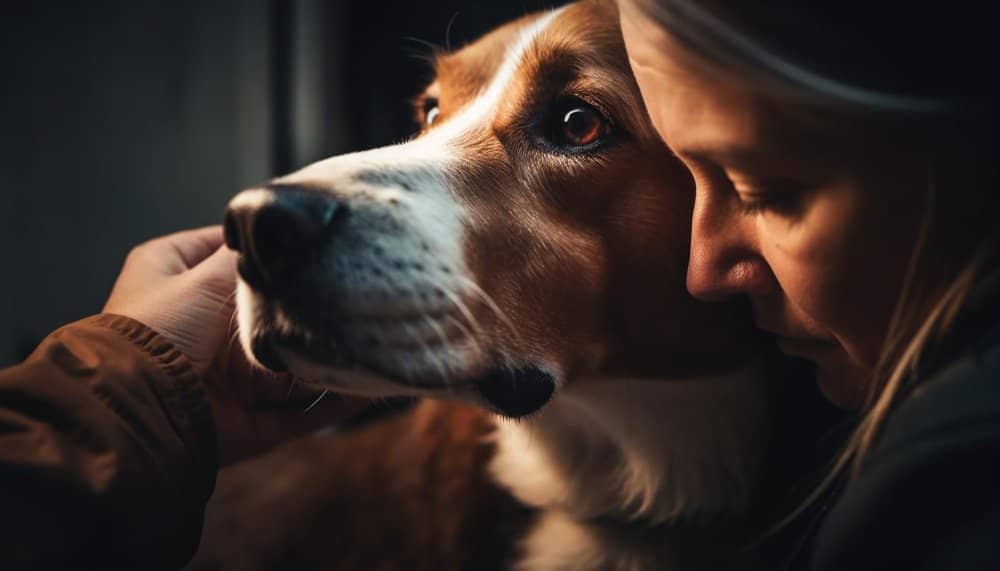Navigating Grief: Healing After Losing Your Cherished Canine Child

Losing a dog is one of the most profound and heart-wrenching experiences a pet owner can endure. These loyal companions are more than just animals—they are family members, confidants, and sources of unconditional love. The grief you’re experiencing is real, valid, and deeply personal. From my own personal experience, my grieving for Reggie has been brutal to this day. I began this blog to honor his life thinking it would help me heal. It’s so hard and my heart goes out to you if you lost your beloved pet. Please leave a comment or feel free to contact me if you want to chat.
Understanding Your Grief
The bond between humans and dogs is extraordinary. Your dog was likely a constant presence in your life, offering comfort, joy, and unwavering companionship. It’s natural to feel an intense sense of loss that can be as deep as losing a human family member. Your emotions may include:
- Overwhelming sadness and heartache
- Feelings of emptiness and loneliness
- Shock, even if the loss was expected
- Guilt about decisions made during their final days
- Anger or confusion about their passing
Honoring Your Emotional Journey
Allow Yourself to Grieve
There is no “right” way to mourn. Your grief is unique, and you should:
- Give yourself permission to feel all emotions
- Cry when you need to
- Talk about your memories
- Avoid rushing your healing process
Create a Memorial
Remembering your dog can be a healing process. Consider:
- Creating a photo album or scrapbook
- Planting a tree or flower in their memory
- Making a donation to an animal shelter
- Keeping a special collar or toy as a keepsake
Practical Steps for Emotional Healing
Seek Support
You don’t have to navigate this pain alone:
- Talk to friends and family who understand pet loss
- Join pet bereavement support groups
- Consider speaking with a grief counselor
- Connect with online communities of pet loss survivors
Take Care of Yourself
Grief can be physically and emotionally exhausting. Prioritize self-care:
- Maintain a consistent sleep schedule
- Eat nutritious meals
- Engage in gentle exercise
- Practice mindfulness or meditation
Dealing with Practical and Emotional Challenges
Home Adjustments
Your home might feel different without your dog. Be patient with yourself as you:
- Gradually pack away pet items
- Clean spaces that remind you of them
- Adjust to new routines
- Recognize that it’s okay to feel sad in familiar spaces
Addressing Potential Guilt
Many pet owners struggle with guilt. Remember:
- You provided love and care throughout your dog’s life
- You made the best decisions possible with the information you had
- Your love was evident in every moment you shared
When Might Professional Help Be Beneficial?
Consider seeking professional support if you:
- Experience prolonged, overwhelming grief
- Struggle to perform daily activities
- Have persistent feelings of depression
- Find it difficult to process your loss
Considering Future Companionship

There’s no “right” timeline for bringing another pet into your life. Some people find comfort quickly, while others need significant time. Trust your healing process and don’t let others pressure you.
A Message of Compassion
Your dog’s love was a gift—a beautiful, transformative experience that changed your life. While they are no longer physically present, the love you shared remains eternal. Your grief is a testament to the depth of your bond.
Be gentle with yourself. Healing is not linear, and some days will be harder than others. Your dog would want you to remember the joy, the laughter, and the unconditional love you shared.
Your pain is real, your loss is significant, and your healing matters.

Leave a Reply
You must be logged in to post a comment.

Leave a Comment